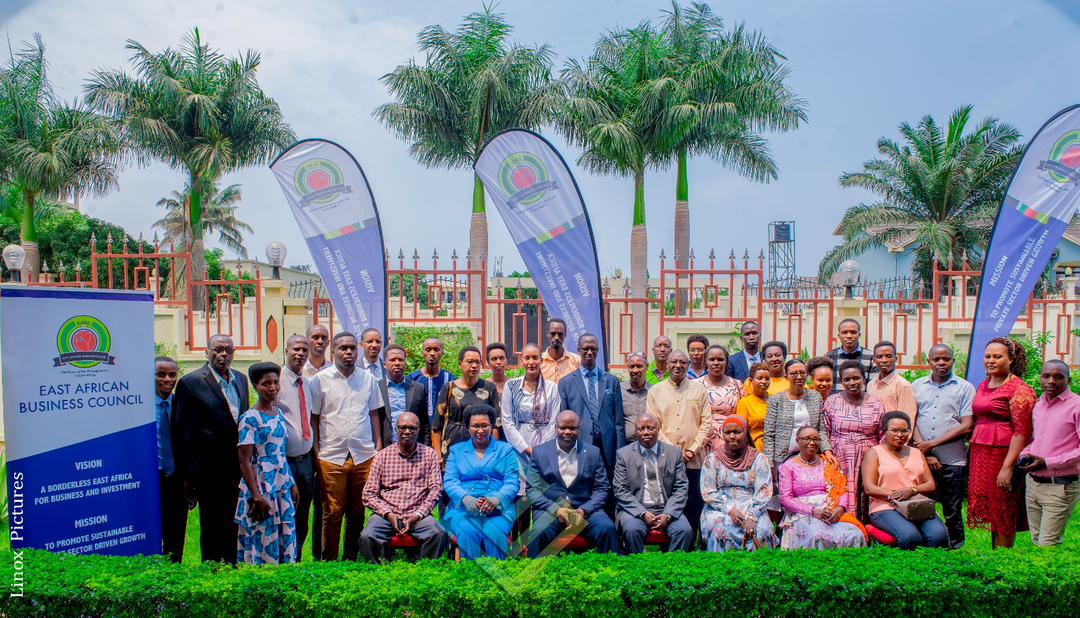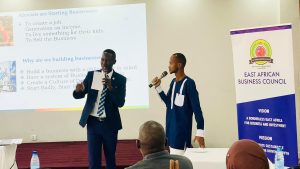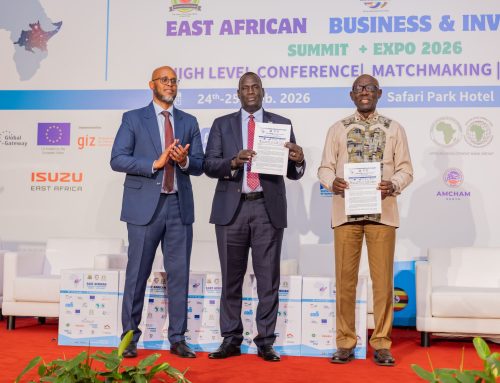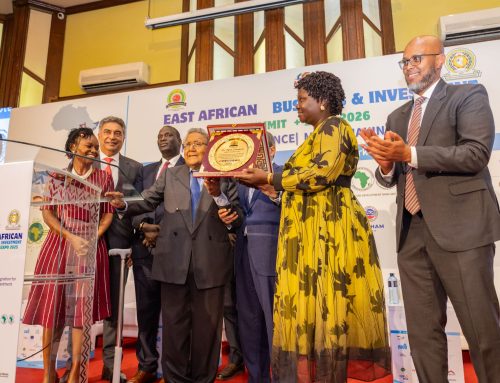Friday, 6th September 2024, Bujumbura, Burundi – The East African Business Council (EABC), in collaboration with the EU Technical Assistance Facility (EU-TAF) and GIZ-EAC, conducted a workshop for SMEs on exporting to the AfCFTA using digital tools. The aim was to foster market linkages across the African continent.
Officiating the workshop, Director General Jacques Rusengo, on behalf of the Minister of Trade, Transport, Industry, and Tourism, commended EABC and EU-TAF for training 50 SMEs on trading under AfCFTA using digital tools. He emphasized the importance of educating youth and women, who make up over 60% of Burundi’s population, about the opportunities presented by trade agreements. He highlighted the critical need to remove non-tariff barriers (NTBs) to boost trade within the EAC and across Africa, underscoring the necessity of strong political will to harmonize policies and legal frameworks to facilitate cross-border trade.
Mr. Rusengo further encouraged the private sector to spearhead the implementation of regional and continental trade agreements, stressing the adoption of digital tools, such as e-commerce, to access new markets. He also underscored the importance of developing digital infrastructure, financial services, and entrepreneurship to support Africa’s growing digital economy.
Hon. Jean Samandari, Secretary General of the Burundi Traders Association (ACOBU), noted that the AfCFTA encompasses 55 countries with a projected population of 1.7 billion by 2030 and contributes to a combined GDP of $3.4 trillion. He urged the government to improve infrastructure and encouraged SMEs to adopt technology to reduce the cost of doing business.
Hon. Samandari also pointed out that Africa accounts for only about 2% of global trade, with just 17% of African exports being intra-continental. The AfCFTA seeks to significantly increase these figures. He called on the government to finalize pending AfCFTA agreements on dispute settlement, tariff offers, rules of origin, services, and intellectual property rights.
Madam Amelie Ninganza, Board Director of the East African Business Council, emphasized the importance of access to real-time trade data and online platforms. She highlighted how digital tools, such as e-commerce, can empower SMEs and reduce operational costs. However, she noted that poor regulatory frameworks for e-commerce, currency convertibility, and volatility hinder SMEs from fully leveraging digital tools to trade across borders.









